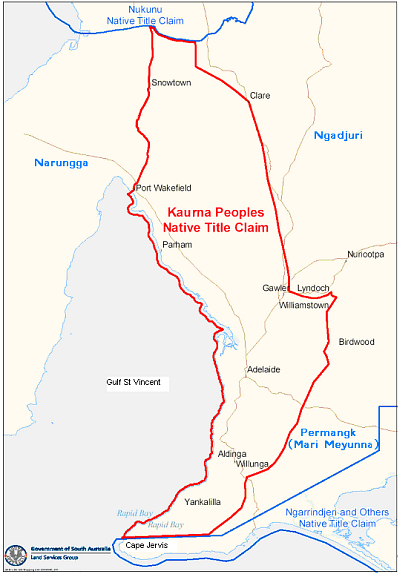Welcome
Background
Just over two years after the official proclamation of what is now South Australia, at the end of October 1838, the first two of eventually four German Lutheran missionaries arrived at the shores of the infant British colony. Clamor Schurmann (1815-1893) and Gottlob Teichelmann (1807-1888) set immediately out to learn the language of the local Aboriginal people, the "Adelaide tribe" as they were then called.
Two years later they published an extensive word list, grammar and collection of sentences of what is now called the "Kaurna" Language. Schürmann learned two more languages, "Ramindjeri" at Encounter Bay (about 100 km south of Adelaide and a sub-language of the Ngarrindjeri Nation around and south of Lake Alexandrina)[ 1 ] and "Barngarla" (previously "Parnkalla") on Eyre Peninsula (800 km west).
Supported by Aboriginal elders, the two missionaries opened a school for Aboriginal children at this place, then called the "Native Location", in December 1839. It was the first ever in colonial Australia to teach in the local vernacular, Kaurna.

Kaurna Native Title Claim, Courtesy of Land Services Group,
Government of South Australia
In 1841, two more German Lutheran missionaries arrived in Adelaide. While Samuel Gottlieb Klose (1802-1889) continued teaching at Pilta Wodli, August Eduard Heinrich Meyer (1813-1862) and his young wife Fredericke Wilhelmine Sternicke (1810-1890) from Berlin began mission work at Encounter Bay. Meyer published a dictionary of the local vernacular (Ramindjeri) in 1843, and so did Schürmann for the Barngarla language (1846). Teichelmann continued working on the Kaurna Language and experimented with different forms of mission work. The four young Germans also published three ethnographic studies of the people with whom they worked, wrote many letters and diary notes, and published articles in contemporary newspapers.
From today's perspective, Klose became important not only as a teacher in the Kaurna language at Pirltawardli, but also for his far-sighted vision to send letters and manuscripts written by his students in the Kaurna Language to the Dresden Missionary Society in Germany, thus documenting their achievements and securing for survival some of the first documents ever created by Aboriginal children in South Australia in their own vernacular.
The missionaries ceased their work in 1846 by acknowledging that they had failed to convert not one Aborigine to the Christian faith. By then, around 50,000 settlers had driven away the few hundred Kaurna Aborigines of the pre-contact Adelaide Plains. However, in the early 1990s, surviving Aborigines, educators, linguists and ethnologists re-discovered these dictionaries and use them today for a successful reclaiming of Aboriginal Languages that were considered extinct or severely threatened in their survival.
This research website collects some of the background material in some organised form to make it publicly accessible in particular to future researchers from among the Aboriginal communities. It will also attempt, as far as possible, to give back names and voices to those Aboriginal people quoted and referred to in the surviving sources of Western observers.
Beyond these objectives, I publish here research material only marginally related to the core story. This is an ongoing process and will involve frequent changes of content and structure of this website.
Footnotes:
- Most likely, his language research notes formed the basis for the further research by Schürmann's missionary colleague and friend, August Eduard Heinrich Meyer. --
Unfortunately, all the private research notes by these missionaries, the linguistic collections, letters "received", drafts or their books are lost or have been destroyed deliberately. If you are aware of any seemingly "obscure" documents relating to these missionaries (or simply period of time), please let the author of this website or the Lutheran Archives Adelaide know. While of no monetary value, these papers are of great importance for the revival of the Aboriginal languages and for our understanding of the encounter between the locals and the missionaries. [ ▲ ]
For reference:
(Created: 06.11.2014. Last updated: 09.01.2019.)
Direct URL: <www.grweb.org/cpo-pirltawardli/en/detail.php?rubric=welcome&nr=164&PHPSESSID=n9jib56dj0lfv2gqu081spd433>. Viewed 20.04.2024.
